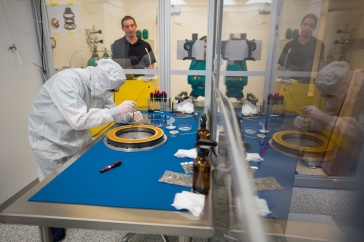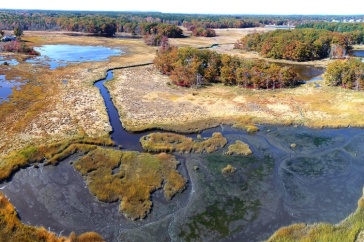
Fourteen research teams representing 79 UNH faculty and staff from across the university, as well as 19 external partners, have received Collaborative Research Excellence (CoRE) funding for FY2022. The CoRE initiative supports interdisciplinary and collaborative efforts driven by UNH researchers that address local, regional, and world issues.
“Interdisciplinary research and scholarship play a critical role in solving complex societal challenges.”
“Interdisciplinary research and scholarship play a critical role in solving complex societal challenges. We are pleased to support our researchers as they cross disciplinary boundaries, collaborate with other thought leaders and practitioners and tackle difficult and important questions,” says Marian McCord, senior vice provost for research, economic engagement, and outreach.
FY2022 projects fall into four categories:
Strengthening Existing Centers better positions existing interdisciplinary research centers for success.
- JEDI-EOS (Leads: Harlan Spence, director of the Institute for the Study of Earth, Oceans, and Space and Katharine Duderstadt, research scientist in the Earth Systems Research Center)
Supporting Large, Complex Proposal Development provides funding to shape and position major, interdisciplinary external grants (annual budget greater than or equal to $3.5 million) for success.
- Proposals to Fly Space Science Center Instrumentation on the NASA GDC Mission (Leads: Lynn Kistler, professor of physics and astronomy and Jim Clemmons, professor of physics and astronomy)
Pilot Research Projects provides one year of seed funding for collaborative research projects with strong potential to attract future funding from external sources and/or with outstanding commercial potential.
- Work-related Musculoskeletal Disorders (WrMSDs) Prevention Team (Lead: Diliang Chen, assistant professor of electrical and computer engineering)
- Assessment of Food Environment and Health Behaviors Throughout the COVID-19 Pandemic in NH Hispanics (Lead: Carlota Dao, assistant professor of agriculture, nutrition, and food systems)
- Neuroinflammation Team (Lead: Sherine Elsawa, associate professor of molecular, cellular, and biomedical sciences)
- The Beetle Aerial Tracking Team (The BAT Team) (Lead: Jeff Garnas, associate professor of natural resources and the environment)
- MoirWaves (Lead: Shawna Hollen, assistant professor of physics and astronomy)
- Civic Health Team (Lead: Michele Holt-Shannon, director of NH Listens)
- Thriving with Theater (Lead: Elizabeth Moschella, research scientist in the Prevention Innovations Research Center)
- Tumor-on-Chip for Drug Delivery (Leads: Sarah Walker, assistant professor of molecular, cellular, and biomedical sciences and Linqing Li, assistant professor of chemical engineering)
- MicroPlastics (Lead: Kai Ziervogel, director of the Ocean Process Analysis Laboratory)
Interdisciplinary Working Groups support groups of faculty for one year to convene around research topic areas to build awareness and relationships across disciplines, allow for cross-fertilization of ideas, identify potential collaborative research opportunities and provide a venue for finding partners.
- The SLATE IWG:? Developing a Science Language Arts TEachers (SLATE) Collaborative PD Model (Leads: Christina Ortmeier-Hooper, associate professor of English and Bethany Silva, research assistant professor of education)
- The Nature Economy Collaborative (Lead: Shannon Rogers, associate extension professor of community and economic development)
- Cybersecurity Assessment Testbed for Advanced Manufacturing (CATeAM) (Lead: Qiaoyan Yu, associate professor of electrical and computer engineering)
CoRE received 28 applications for this year’s competition, with proposals seeking almost $900K in funding. The CoRE initiative launched in FY18 and has invested more than $2 million in 74 interdisciplinary awardees through annual competitions. Over its first three years, 46 interdisciplinary project teams received awards. CoRE-funded projects have reported a breadth of research and scholarship outputs that include over $134 million in external grant proposal submissions; $44 million in new awards; 33 courses impacted by CoRE-related teaching and instruction; 130 activities such as conferences, workshops and presentations engaging over 8,000 academic, community, and industry partners; and numerous manuscripts and publications.
For more information on CoRE, contact Mark Milutinovich, senior director, Research & Large Center Development, and Maria Emanuel, CoRE initiative manager, or visit the CoRE website.
Awardees of the FY22 UNH CoRE initiative will share information about their projects at the CoRE kickoff event October 14, 3 p.m. The approximately hour-long event is open to CoRE team members (internal and external) and the entire UNH community. Please register to receive a Zoom link.
?
-
Written By:
Maria Emanuel | CoRE | maria.emanuel@unh.edu



















































